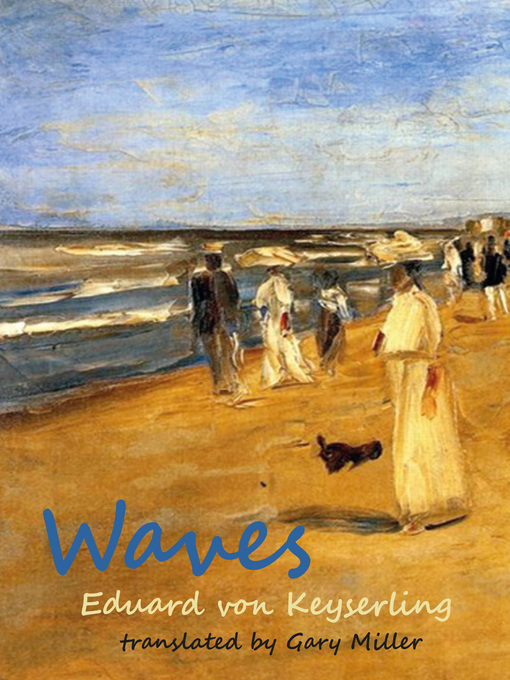First published on the eve of the First World War, Keyserling's masterpiece offers a vivid portrait of a society on the verge of dissolution. A group of German aristocrats gathers at a seaside village on the Baltic Sea for a summer holiday in the early years of the twentieth century. The characters represent a cross-section of the upper classes of imperial Germany: a philandering baron, his jealous wife, a gallant cavalry officer, the elderly widow of a general, a cynical government official, a lady's companion. Their lives, even on holiday, are regulated by rigid protocol and archaic codes of honour. But their quiet, disciplined world is thrown into disarray by the unexpected presence of Doralice, a young countess who has rebelled against social constraints by escaping from an arranged marriage and running away with a bourgeois artist. Gary Miller's new translation will find a new generation of readers for this neglected German classic. "Keyserling...understands how to describe a summer afternoon so that as the bright sunshine turns to twilight one has the sensation of a whole lifetime." Hermann Hesse "For him, art consisted of questioning, kindness, self-discipline, music and dreams. He was never a leader, but he will always be loved." Thomas Mann
First published on the eve of the First World War, Keyserling's masterpiece offers a vivid portrait of a society on the verge of dissolution. A group of German aristocrats gathers at a seaside village on the Baltic Sea for a summer holiday in the early years of the twentieth century. The characters represent a cross-section of the upper classes of imperial Germany: a philandering baron, his jealous wife, a gallant cavalry officer, the elderly widow of a general, a cynical government official, a lady's companion. Their lives, even on holiday, are regulated by rigid protocol and archaic codes of honour. But their quiet, disciplined world is thrown into disarray by the unexpected presence of Doralice, a young countess who has rebelled against social constraints by escaping from an arranged marriage and running away with a bourgeois artist. Gary Miller's new translation will find a new generation of readers for this neglected German classic. "Keyserling...understands how to describe a summer afternoon so that as the bright sunshine turns to twilight one has the sensation of a whole lifetime." Hermann Hesse "For him, art consisted of questioning, kindness, self-discipline, music and dreams. He was never a leader, but he will always be loved." Thomas Mann

